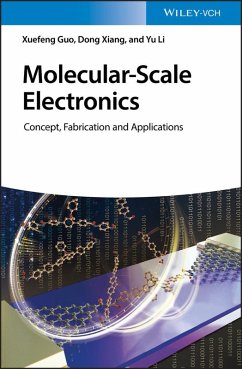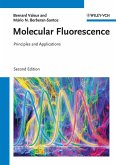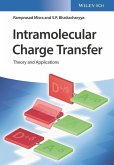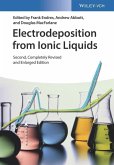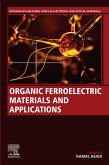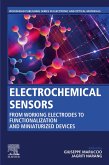Provides in-depth knowledge on molecular electronics and emphasizes the techniques for designing molecular junctions with controlled functionalities This comprehensive book covers the major advances with the most general applicability in the field of molecular electronic devices. It emphasizes new insights into the development of efficient platform methodologies for building such reliable devices with desired functionalities through the combination of programmed bottom-up self-assembly and sophisticated top-down device fabrication. It also helps to develop an understanding of the device fabrication processes and the characteristics of the resulting electrode-molecule interface. Beginning with an introduction to the subject, Molecular-Scale Electronics: Concept, Fabrication and Applications offers full chapter coverage on topics such as: Metal Electrodes for Molecular Electronics; Carbon Electrodes for Molecular Electronics; Other Electrodes for Molecular Electronics; Novel Phenomena in Single-Molecule Junctions; and Supramolecular Interactions in Single-Molecule Junctions. Other chapters discuss Theoretical Aspects for Electron Transport through Molecular Junctions; Characterization Techniques for Molecular Electronics; and Integrating Molecular Functionalities into Electrical Circuits. The book finishes with a summary of the primary challenges facing the field and offers an outlook at its future. * Summarizes a number of different approaches for forming molecular-scale junctions and discusses various experimental techniques for examining these nanoscale circuits in detail * Gives overview of characterization techniques and theoretical simulations for molecular electronics * Highlights the major contributions and new concepts of integrating molecular functionalities into electrical circuits * Provides a critical discussion of limitations and main challenges that still exist for the development of molecular electronics * Suited for readers studying or doing research in the broad fields of Nano/molecular electronics and other device-related fields Molecular-Scale Electronics is an excellent book for materials scientists, electrochemists, electronics engineers, physical chemists, polymer chemists, and solid-state chemists. It will also benefit physicists, semiconductor physicists, engineering scientists, and surface chemists.
Dieser Download kann aus rechtlichen Gründen nur mit Rechnungsadresse in A, B, BG, CY, CZ, D, DK, EW, E, FIN, F, GR, HR, H, IRL, I, LT, L, LR, M, NL, PL, P, R, S, SLO, SK ausgeliefert werden.

